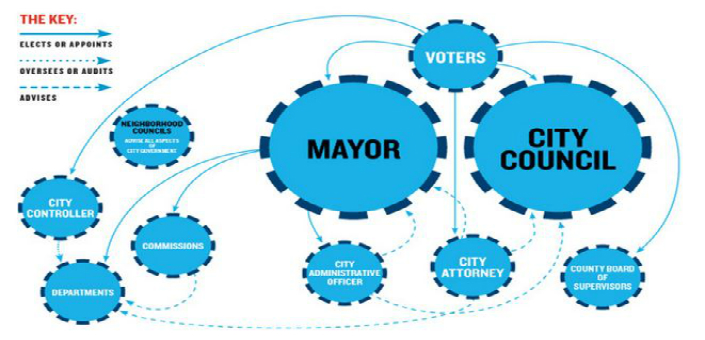 Civic U Kicks Off With First of Three Workshops
Civic U Kicks Off With First of Three Workshops
Civic U, a series of workshops aimed at closing the gap between Neighborhood Councils and City Hall and empowering Neighborhood Council leaders with tools for attaining productive influence in City Hall, kicked off this Thursday evening at LAPD’s Deaton Hall.
A collaboration between the Board of Neighborhood Commissioners, the Department of Neighborhood Empowerment, the Mayor’s Office, and the Pat Brown Institute for Public Affairs, Civic U arose from a shared belief that as a result of the immense gaps in public knowledge and understanding of how Los Angeles city government works, people in many communities feel that they cannot effectively influence their own government.
The Civic University operates on the premise that when it comes to local government, a well-informed community is more active. People can have a greater impact on government by increasing their understanding of how the system is designed and how it actually functions in reality. Civic U is not just about explaining the formal processes of local government (“how does a council motion becomes an ordinance?”) but why things happen as they do. What are the important access points within local government?
This program is different from a traditional training curriculum. Lessons will not include how to lead a citizen board, how to comply with the Brown Act, or how to organize the budget of a Neighborhood Council. Rather, participants will examine how Neighborhood Councils can best achieve their mission and attain productive influence at city hall, as well as consider how the 1999 Los Angeles City charter reform changed both government and participation.
In his remarks at the opening of the program, Mayor Garcetti praised the Civic University program, expressing that “the best legacy I can leave as an elected official is the people I empower.” He stressed his administration’s commitment to responsiveness to local concerns and encouraged Civic U attendees to spread the lessons they learn in their communities — because four million empowered people who know how the City works and how to make a difference can be an “unstoppable force.”
The program is led by Dr. Raphael Sonenshein, Executive Director of the Pat Brown Institute and former executive director of the charter reform commission that created the Neighborhood Council system in 1999. In this first session, he presented on the structure of the Los Angeles city government, how it differs from other cities through its horizontal governing structure, and explained the connections between the Mayor, the City Council, and City departments and agencies. Dr. Sonenshein emphasized the importance of knowing how the government works and which office or official to try to influence, and explained the history of the Neighborhood Council system in Los Angeles.
The remaining two workshops will take place on April 8 and April 15. Upon completion of all three workshops, participants will receive a certificate from Cal State LA and will be empowered with new tools and skills for making meaningful change in their communities.